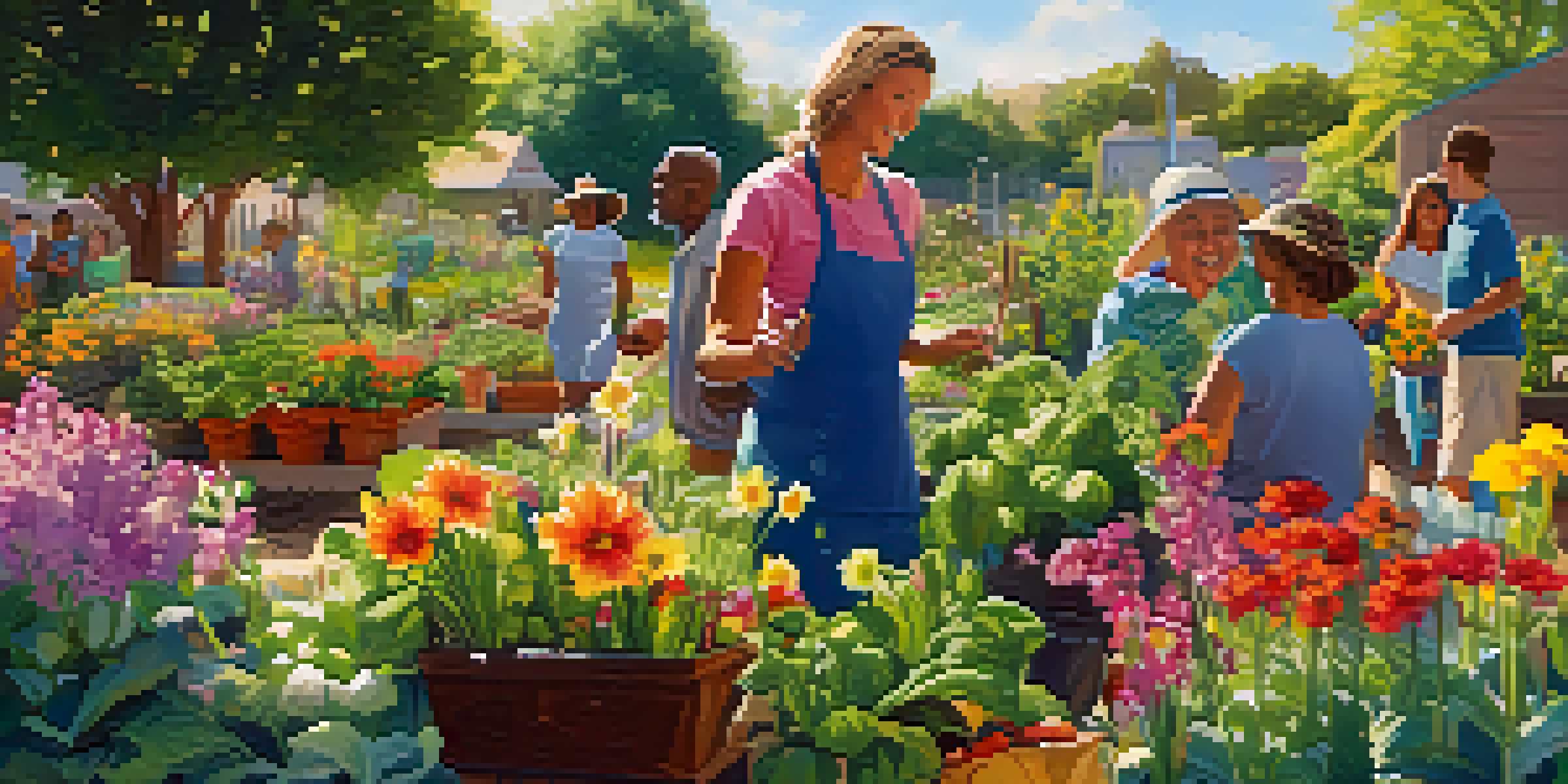Nurturing Community Relations Through Gardening Activities

The Importance of Community Engagement in Gardening
Community engagement is essential for fostering relationships and building trust among residents. Gardening activities provide a unique opportunity for individuals to come together for a common purpose: cultivating plants and creating beauty. This shared experience can break down barriers, encouraging conversations and connections that might not happen otherwise.
Creating Shared Spaces for Connection
Community gardens serve as physical spaces where neighbors can gather and interact. These gardens often transform vacant lots into vibrant areas filled with flowers, vegetables, and friendships. By working together to maintain these spaces, community members develop a sense of ownership and pride, which can lead to lasting bonds.
Community Gardens Foster Connections
Community gardens create shared spaces that encourage neighbors to interact and build lasting relationships.
Gardening as a Tool for Education and Growth
Gardening activities can also serve as educational platforms, teaching people of all ages about sustainable practices and healthy eating. Workshops and hands-on experiences can empower community members with knowledge and skills that benefit both individuals and the community as a whole. This shared learning experience not only enhances personal growth but also strengthens community ties.
Fostering Inclusivity Through Collaborative Efforts
Gardening initiatives can promote inclusivity by bringing together individuals from diverse backgrounds. By inviting everyone to participate, whether they are experienced gardeners or novices, you create an environment where everyone feels valued. This inclusivity fosters understanding and respect among participants, ultimately enhancing community cohesion.
Gardening Educates and Empowers
Gardening initiatives provide educational opportunities, teaching sustainable practices and enhancing community knowledge.
Enhancing Mental Well-being Through Gardening
Engaging in gardening activities has proven mental health benefits, such as reducing stress and anxiety. The act of nurturing plants can provide a sense of accomplishment and purpose, which contributes positively to emotional well-being. When community members come together to garden, they can support each other, creating a network of care and compassion.
Strengthening Local Identity and Pride
Community gardening can enhance local identity by showcasing unique plants and flowers that represent the area. This not only beautifies the neighborhood but also instills pride among residents. When people see their community flourishing through collaborative efforts, it fosters a deeper connection to their surroundings and each other.
Celebrating Together Builds Unity
Events like harvest festivals allow community members to celebrate their gardening efforts, reinforcing a sense of belonging.
Building Resilience Through Shared Resources
Gardening activities encourage communities to share resources, from tools to knowledge, creating a culture of cooperation. When community members collaborate to overcome challenges, such as pests or weather issues, they build resilience together. This shared experience strengthens relationships and prepares the community to face future challenges collectively.
Celebrating Achievements Together
Celebrating the fruits of community gardening efforts can further strengthen relationships. Events like harvest festivals or plant swaps allow members to showcase their hard work and share their bounty. These celebrations not only create joyful memories but also reinforce the sense of community, making everyone feel like they are a part of something special.